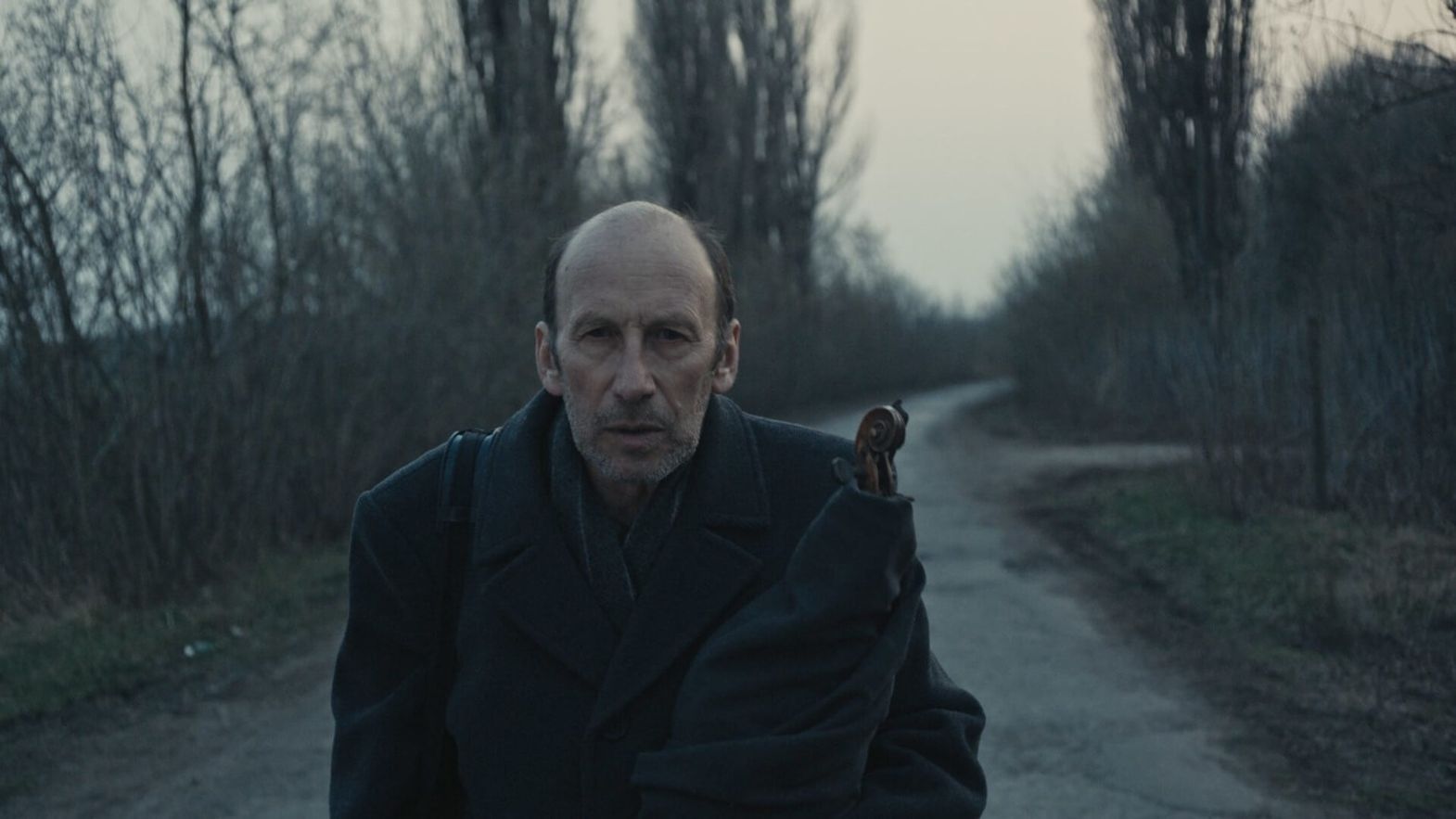 © Andrii Lysetskyi
© Andrii Lysetskyi
An old bus drives through a desolate landscape, at dawn, somewhere in Eastern Ukraine. Inside, it is packed with common people, villagers, workers. Among them is a middle-aged man who we will later identify as Anatoliy. Soon after, he gets down the bus and walks across the muddy road with a bunch of sacks in his hands. Nobody is to be seen around and the winter landscape is worth a thousand words. The opening of Stepne not only introduces us to the film’s protagonist, played with meticulous precision by Oleksandr Maksiakov, but immediately sets the film’s crepuscular tone through a striking setting, an ethereal atmosphere and a nearly-documentary yet rigorous filmmaking style. A fictional story deeply rooted in reality, Stepne is Maryna Vroda’s highly expected feature-length debut, in the works for over a decade. Mostly known for her short film Cross (2011), in which she subtly reflected on human existence, and which won the Palme d’Or at the Cannes Film Festival, the Ukrainian director delivers here a socially, politically and aesthetically highly relevant work of art that echoes the best examples of Eastern European cinema heritage and extends its legacy with another masterpiece. The godforsaken place that Anatoliy is visiting is his hometown, never specifically named in the film, where the ageing population is slowly but steadily disappearing. He has come to take care of his dying mother (played by Nina Antonova), and this elegiac voyage will be an encounter with the past – his own past and memories, mostly mirrored in the figure of Ania (Radmila Shegoleva), a long-lost love who stayed in the small town; but also the past of a country, of people who have lived through and survived great famines and wars – and are now fading away. Scarce with words, Stepne is a film in which meaning and emotions reach the audience through its abundant expressive silences and that what remains untold; through the movement of the camera, which seems to create a choreographed dance together with the mise-en-scène, yet still feels to be an integral part of the reality it is capturing; through the reflection of diffuse daylight and warm candle-light on faces, objects and spaces; through the physiognomy of the non-actors and the song they perform; through the carefully designed soundscape and the magnetic editing rhythm. Ultimately, Stepne is a melancholic and mournful film about farewells – about saying goodbye to the dear ones, to the past times, to the origins. A film that will confront us with our own personal recollections. A chronicle of disappearance.
Stefan Ivančić